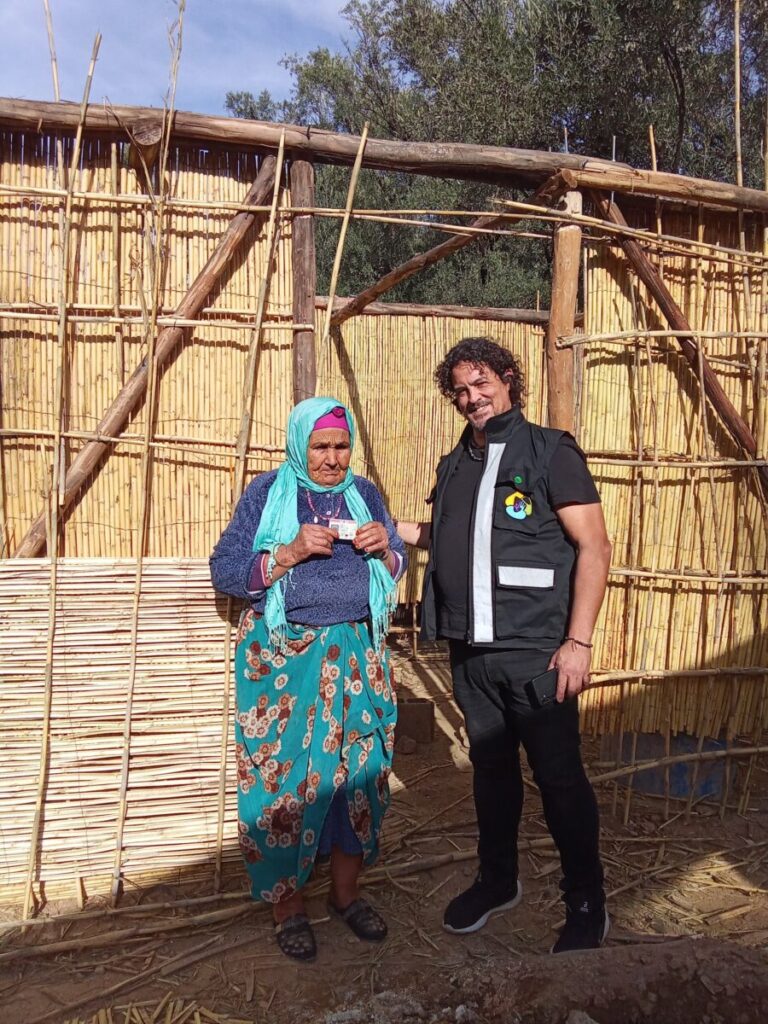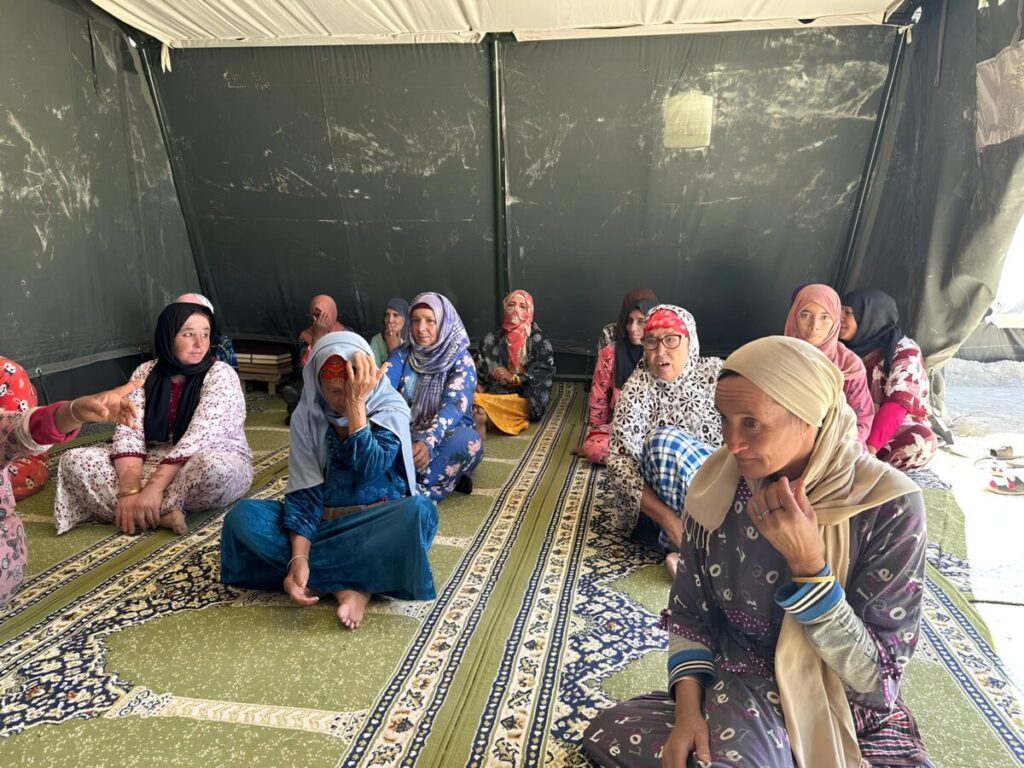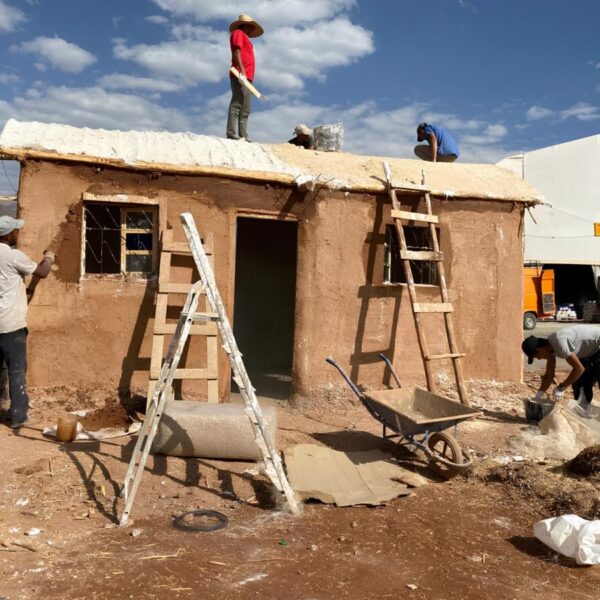Nearly two million Moroccans have left rural areas in the last ten years, according to the High Commission for Planning (HCP). To address this situation, Elmahdi Benabdeljalil launched the NGO Amal Biladi in 2020. The concept? To support the development of territories through a "Rural Academy of Excellence," tasked with training primarily young people and women from isolated or precarious villages in eco-construction, agro-ecology, and eco-tourism.
Everything starts from a double observation for Elmahdi Benabdeljalil, a social actor from the Fès region in northeastern Morocco. First, the villages of the country are emptying. A recent note from the HCP (the agency responsible for statistics in the country) reveals that two million inhabitants in rural areas have left their countryside in the last decade. And unemployment, between October 2023 and October 2024, rose from 7% to 7.4% in these areas. Secondly, each village, however, holds wealth that allows for its own development.
Getting out of dependency
In 2020, this social entrepreneur founded the NGO Amal Biladi, which could be literally translated as "the hope of my country." “The idea was to move away from expressions like ‘the useless Morocco’ and ‘the forgotten Morocco’ that we often hear,” he explains. “And to have an approach that would blend the social aspect, very important for getting out of precariousness, and the economic aspect, to move away from dependency.” Amal Biladi, in connection with a number of Moroccan partners, thus proposes to support the development of territories through a “Rural Academy of Excellence.” This institution functions like an incubator for projects arising from the rural world and concerning five sectors of activity: eco-tourism, eco-construction, local products, agro-ecology, and handicrafts. With the intention of helping actors in territorial ecosystems, particularly women and youth, to develop their incomes.

The Covid and then an earthquake
The project, halted due to COVID, was reactivated in the summer of 2023 with an experiment planned in three villages in northern Morocco, in the provinces of Larache, Tangier, and Chefchaouen. But in September, the earthquake struck the south of the country, in the regions of Al Haouz, Taroudant, and Chichaoua. The Amal Biladi team then decided to postpone the northern project to assist the affected populations. “We were able to obtain emergency aid from one of our strategic partners. From there, we set up a psychological support operation with theArt of Living, an international NGO specialized in emotional release after a disaster. We also received extraordinary donations from abroad that we were able to transport and distribute on-site, benefiting nearly 5000 people.”
Adapting temporary housing in affected areas
Amal Biladi, on-site, is also tackling the issue of temporary housing, to find an alternative to tents or poorly insulated prefabricated buildings that are not suitable for large families on-site. “We were fortunate to meet Elie Mouyal, an architect who has revived the ancestral concept of nouala, a temporary, ecological house built with local materials and at low cost.” Today, nearly fifty such dwellings have been constructed in two villages in the affected areas, accommodating 250 people. “A drop in the ocean compared to the overall impact, but still something important and scalable.” The president of Amal Biladi now hopes to double the number of noualas in these areas.
Still on-site, the NGO is also working on the construction of a community center for children and adolescents. But also to facilitate access to drinking water in three primary schools and two villages. And that's not all: Elmahdi Benabdeljalil aims to raise three million dirhams (about €285,000) to bring a medical caravan from the United States to the earthquake-affected areas. To create a hospital on-site, where local doctors could work.
All these experiences in the south reflect back on northern Morocco, which is still developing. “They have allowed us to establish real credibility at the institutional level,” the social actor believes. Currently on a tour in the Tangier region to meet authorities and new partners, he announces: “Our first action is planned in a few weeks: a training in eco-construction, which will allow for the issuance of certificates for master craftsmen in this sector.” Next objective: to set up a first guesthouse, the operation of which will align with the values of eco-tourism and agro-ecology of the Rural Academy of Excellence. A model that other regions will adopt, hopes Elmahdi Benabdeljalil. To enable dynamism and entrepreneurship in rural areas of Morocco, but also, why not, elsewhere in Africa.
This article is part of a trilogy on the theme of rural desertification. You can find them HERE
Schoolchildren, an antidote to rural desertification
When citizen savings save farms

Featured photo: Construction of a Nouala in one of the two villages (Aït Bourd, in the commune of Amizmiz, and Igherman, in the commune of Assif Elmal) ©Amal Biladi
